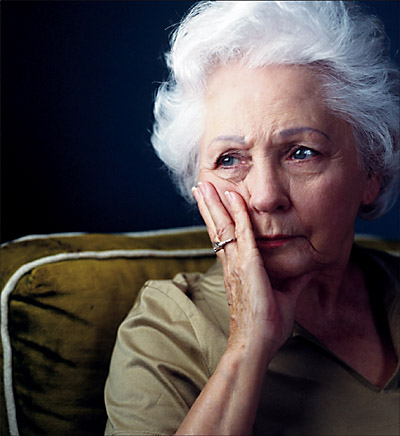Elderly people are at risk of dying from cardiovascular disease if Vitamin D is lacking
A new study by scientists from the University of Colorado Denver and Massachusetts General Hospital (MGH) shows that vitamin D plays an important role in reducing the risk of dying from old age. The study, published in the American Journal of Elderly, evaluated the association between blood levels of vitamin D and the mortality rates of people aged 65 and older. This study indicates that cardiovascular morbidity rates among older people who do not have adequate vitamin D levels are higher than those with adequate vitamin intake.
Dr. Adit Ginde, an assistant expert at the University of Colorado Denver, said the division of the Department of Emergency Medicine, and the lead researcher, said: ' More than one-third of older people have Vitamin D With a high risk of death and very few people with a vitamin-to-optimal ratio, ' he added: 'With the aging population and the simplicity of increasing the amount of Vitamin D for a person like today. then a small improvement in mortality may also have sustainable impacts on public health. '
Elderly people often face the risk of vitamin D deficiency because their skin is less exposed to the sun because they have less outside play and reduced ability to make vitamin D.
The study analyzed data from the National Health and Nutrition Examination Survey conducted by the National Center for Medical Data. The team analyzed vitamin D in blood samples from more than 3,400 people recruited from 24 million elderly people in the United States. Compared to those with optimal vitamin D status, those with low vitamin D levels are three times more likely to die from cardiovascular disease and 2.5 times more likely to die from other diseases.
 Elderly people are at risk of dying from cardiovascular disease if Vitamin D is lacking (Photo: Stevemehta)
Elderly people are at risk of dying from cardiovascular disease if Vitamin D is lacking (Photo: Stevemehta)
Dr. Ginde said that the conclusions of the study showed that daily vitamin D levels may not be enough for older people to maintain optimal health. The team used research funding from the National Institutes of Health to implement a relatively large population-based clinical model to provide vitamin D to older people to see if this could be whether to improve the life and reduce the impact of cardiovascular diseases.
Doctor, Dr. Carlos Camargo worked at MGH's Emergency Medical Department, the lead author of Harvard Medical School's medical research and study, said: 'The affirmation of these results in trials Being random is particularly important to improving public health '.
Research on the mortality rate of elderly people is one of two studies conducted by the research team on vitamin D and general health. The first study published in Archives of Internal Medicine earlier this year found that Vitamin D plays a very important role in boosting the immune system and preventing colds and flu.
Dr. Ginde concluded: 'Vitamin D has health effects that make bones strong. It contributes to building a healthy body '.
- Vitamin D reduces the risk of cardiovascular disease
- Vitamin D deficiency in children
- Learn about the role of vitamin K in the body
- Vitamin D deficiency will cause depression
- Lack of vitamin B12 increases the risk of Alzheimer's
- Vitamin B12 is good for the memory of the elderly
- Erectile dysfunction and cardiovascular disease
- Calcium supplementation does not increase the risk of cardiovascular disease in women
- Reduce cardiovascular risk by 2,000 walking steps
- Eating salty is not good for the elderly brain and heart
- Flu vaccination reduces the risk of cardiovascular events by 50%
- Vitamin B6 reduces the risk of Parkinson's disease by half
 Green tea cleans teeth better than mouthwash?
Green tea cleans teeth better than mouthwash? Death kiss: This is why you should not let anyone kiss your baby's lips
Death kiss: This is why you should not let anyone kiss your baby's lips What is salmonellosis?
What is salmonellosis? Caution should be exercised when using aloe vera through eating and drinking
Caution should be exercised when using aloe vera through eating and drinking